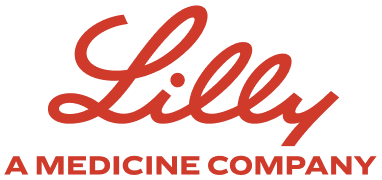
Resources
Frequently Asked Questions
What makes phase III clinical trials different?
When clinical trials enter phase III, they have already demonstrated considerable safety and efficacy. The drug in question has been scrutinized for years and has been overseen by regulatory bodies such as the US Food and Drug Administration (FDA) and institutional review boards (IRBs), groups that monitor and review biomedical research involving human subjects.1
Why is Lilly making this commitment to clinical trials?
Lilly believes that higher enrollment in clinical trials, not only those sponsored by Lilly, is a way to enhance cancer care for patients as a whole. With higher enrollment in trials, more cutting-edge therapies enter the market more quickly, giving cancer patients the treatment they may need.
At Lilly, we have achieved rapid pipeline growth into diverse modalities and built capabilities to speed new treatments to patients. Unlocking the potential of the 93% of oncology patients in the US who currently do not participate in clinical trials will accelerate the development of cutting-edge therapies and increase representation in our trials, bringing optimal care to all patients. This can also shorten our trial enrollment timelines and bring optimal care to patients.2
Lilly has been committed to making breakthrough medicines for nearly 150 years, and clinical trials have been an integral part of our work. Alongside helping to boost clinical trial consideration overall, Lilly is working diligently to help discover and develop even more targeted oncology medicines.
How are the guidelines around clinical trials changing, and what can I expect?
The FDA has produced new guidelines regarding clinical trials, streamlining the process and making it easier for referring oncology healthcare professionals. Changes include obtaining data from routine clinical interactions, enhancing integration of clinical research and overall care, capturing results through standardized electronic health record (EHR) systems, and allowing local oncology healthcare professionals to conduct certain procedures that are within the scope of their practice and expertise.3
How involved should I expect to be with clinical trials?
We are dedicated to making certain tedious aspects of clinical trials—like paperwork—less burdensome while enabling oncology healthcare professionals to receive updates as they so choose. Through this partnership, you can feel empowered to be involved in clinical trials and give patients the high-quality care they deserve. Our dedication to this cause goes beyond just Lilly-sponsored trials, and we will do everything we can to implement these changes across the entire oncology community.
Why should I consider phase III clinical trials for my patients?
Phase III clinical trials should be considered for all appropriate patients, because trials provide patients the opportunity to receive cutting-edge care. Trials also advance science in the oncology community, now and for the future.
Do I need to work at an institution or have an existing relationship with an institution in order to be involved with clinical trials?
No. You will be connected to the most convenient option for you, your patient, and your practice. Try utilizing the Trial Finder to find out more.
What if my current practice isn’t set up to help me learn about or refer patients to clinical trials?
Lilly offers tools to help with this issue. Use the Trial Finder to find an appropriate trial for your patients.
Will trial participation disrupt my standard care practices?
According to new FDA guidelines, local oncology healthcare professionals can conduct certain procedures that are within the scope of their practice and expertise (for example, physicians with gastroenterology expertise can perform endoscopies and colonoscopies that might be needed for trial monitoring) so they can still treat patients even when they’re enrolled in a trial.3
Follow these links for more information on clinical trials


ClinicalTrials.gov
A comprehensive, searchable list of ongoing and available clinical trials.
Visit ClinicalTrials.gov
National Institutes of Health (NIH)
Information for patients about the benefits of clinical trials.
Visit the NIHReferences
- FDA. The drug development process: step 3. Updated January 4, 2018. Accessed November 14, 2024. https://www.fda.gov/patients/drug-development-process/step-3-clinical-research
- Unger JM, Shulman LN, Facktor MA, et al. National estimates of the participation of patients with cancer in clinical research studies based on Commission on Cancer accreditation data. J Clin Oncol. 2024;42(18):2139-2148. doi:10.1200/JCO.23.01030
- FDA. Integrating randomized controlled trials for drug and biological products into routine clinical practice: guidance for industry. Published September 2024. Accessed November 15, 2024. https://www.fda.gov/media/181871/download







